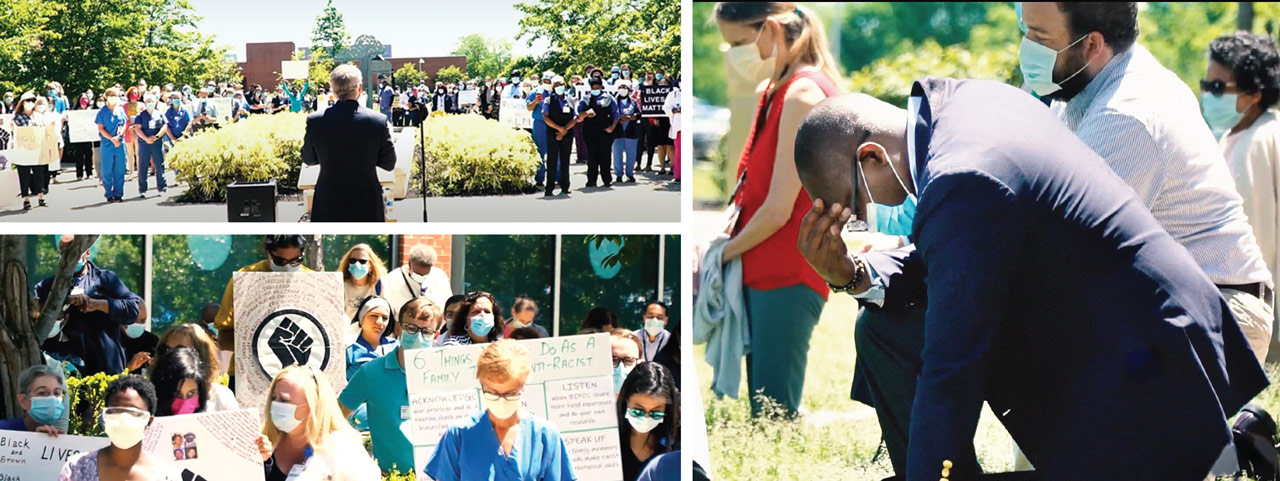“Disparities in mental health diagnosis and treatment across culturally diverse groups have been well documented,” says Marguerite Pedley, PhD, Senior Vice President of Penn Medicine Princeton House Behavioral Health. “We have known for decades that pervasive trauma and systemic bias can lead to an increased incidence of mental health and substance use disorders in impacted communities. How we respond going forward, emboldened by this moment of national reckoning, will be the key to determining our success at bringing about enduring change.”
The recent protests for racial justice have inspired unprecedented solidarity and the opportunity for our entire community to commit to actions that will have a lasting effect. At Penn Medicine Princeton House Behavioral Health, we understand that lasting and meaningful change is long overdue, and that we need to do meaningful work to make that change happen.
As part of a system-wide diversity and inclusion journey over the past few years, Princeton House works diligently to provide a safe, welcoming environment for all patients and staff so that everyone can achieve their full potential. This work is guided by a Diversity and Inclusion Steering Committee with representation from across the healthcare system, as well as the Penn Medicine Office of Inclusion and Diversity, which is currently expanding its action items and measurable outcomes toward a more inclusive community. This includes implicit bias training for every Penn Medicine team member.
“Princeton House has a long tradition of being a welcoming environment to all races, ethnicities, creeds, and sexual orientations for both staff and patients,” says Neal Schofield, MD, Chairman of the Department of Psychiatry at Princeton House.
“Our provider staff itself is drawn from a diverse array of backgrounds, which strengthens our collective skill set and awareness,” he adds. “We welcome further progressive change.”
As we plan our next steps together, we continue to seek broad input that honors and includes the perspectives of the diverse voices in our community. Together, we will listen, learn, and lead. We will implement rapid actions and develop strategies that will have a sustained impact on our culture and our community. These efforts can no longer wait. Future generations require our action.
Pictured above: On a summer morning in June, staff gathered in the Healing Garden at Princeton Medical Center to honor the lives that are impacted or have been lost to racism and social injustice and to commit to making lasting change.
Article as seen in the Fall 2020 issue of Princeton House Behavioral Health Today.



